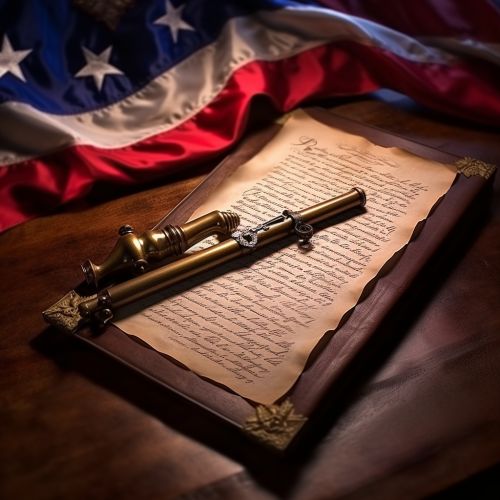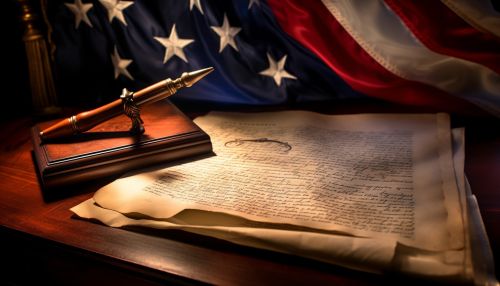Third Amendment to the United States Constitution
Introduction
The Third Amendment is a part of the Bill of Rights in the Constitution. It was introduced on September 25, 1789, and ratified on December 15, 1791. The amendment places restrictions on the quartering of soldiers in private homes without the owner's consent, prohibiting it during peacetime.


Text
The text of the Third Amendment is concise and clear in its intent: "No Soldier shall, in time of peace be quartered in any house, without the consent of the Owner, nor in time of war, but in a manner to be prescribed by law."
Historical Context
The Third Amendment was introduced in response to the Quartering Act of 1765, which was enacted by the British Parliament at the time of the Revolution. This act allowed British soldiers to take up residence in American homes, often without the consent of the homeowners. This was seen as a significant violation of the colonists' rights, leading to widespread resentment and contributing to the tensions that sparked the American Revolution.
Interpretation and Application
Despite its historical significance, the Third Amendment has been rarely invoked in modern legal cases. It is one of the least litigated sections of the Constitution, primarily because the situation it addresses - the quartering of soldiers in private homes - is not a common occurrence in contemporary America. However, it has been referenced in cases related to privacy rights and property rights, such as Griswold v. Connecticut and United States v. U.S. District Court.
Impact and Significance
The Third Amendment, while rarely invoked, holds a significant place in American constitutional law. It is a testament to the Founding Fathers' commitment to protecting individual rights and their resistance to military intrusion into civilian life. It also serves as a reminder of the historical context in which the Constitution was written, reflecting the colonists' experiences under British rule.
